Amsterdam mayor seeks red light closures
- Published
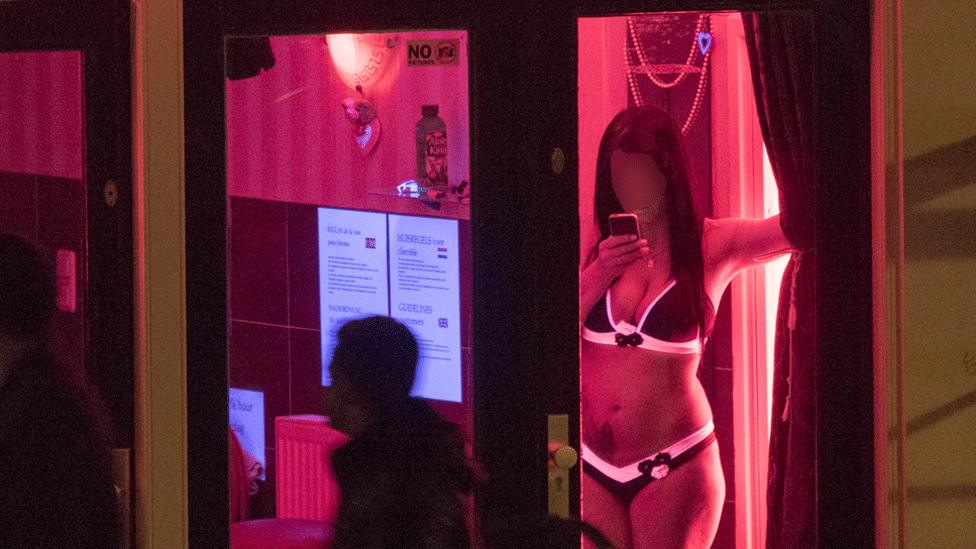
The proposals include banning sex workers standing in window-fronted rooms
Amsterdam's mayor has announced options to radically revamp the city's red light district, including closing down brothels in the city centre.
Femke Halsema is seeking to implement the biggest overhaul of the city's sex trade in two decades.
The options include banning sex workers standing in window-fronted rooms.
The new proposals are an effort to protect sex workers from gawping tourists and to combat a rise in human trafficking, Ms Halsema said.
But there are no plans to outlaw prostitution altogether, she added.
"I think a lot of the women who work there feel humiliated, laughed at and that's one of the reasons we are thinking about changing," she told Reuters.
The four main scenarios are: ending street window displays; closing down city centre brothels and moving them elsewhere; reducing the number of city centre brothels; and stepping up the licensing of window workers.
Other plans include an "erotic city zone" with a clear entrance gate.
The four main options will be explained to residents and businesses this month before one is picked and put to a vote in the city council later this year, Ms Halsema said.
Prostitution was legalised by the Dutch government in 2000.

Visibility makes many feel safer
By Anna Holligan, The Hague Correspondent, BBC News
The most striking element of this "radical revamp" is that there's no option to outlaw prostitution outright.
Banning women from advertising themselves in the red light windows would remove the city's top tourist attraction. However, many women who work in these brothels have told me their visibility makes them feel safer rather than more vulnerable.
The fear among support workers is that pushing them out of the city would force the sex business into the less well policed back streets.
It's debatable whether cutting the number of brothels will diminish demand.
Turning the red light district into a gated "erotic zone" would at least contain what some locals feel is the disturbance caused by those who come to buy sex or get excited by the novelty.
Prostitutes already require licences to work in the windows.
Stricter licensing could help to cut crime if it can identify those who are being forced to sell sex.
Prostitution is an increasingly contentious and divisive issue among feminists in the Netherlands - some believe the trade is degrading and exploitative, others contend that women should be free to decide what to do with their own bodies.
Many of those who work in this lucrative trade think that rather than forcing the prostitutes out, the council should be teaching tourists how to respect their space.
- Published19 January 2019
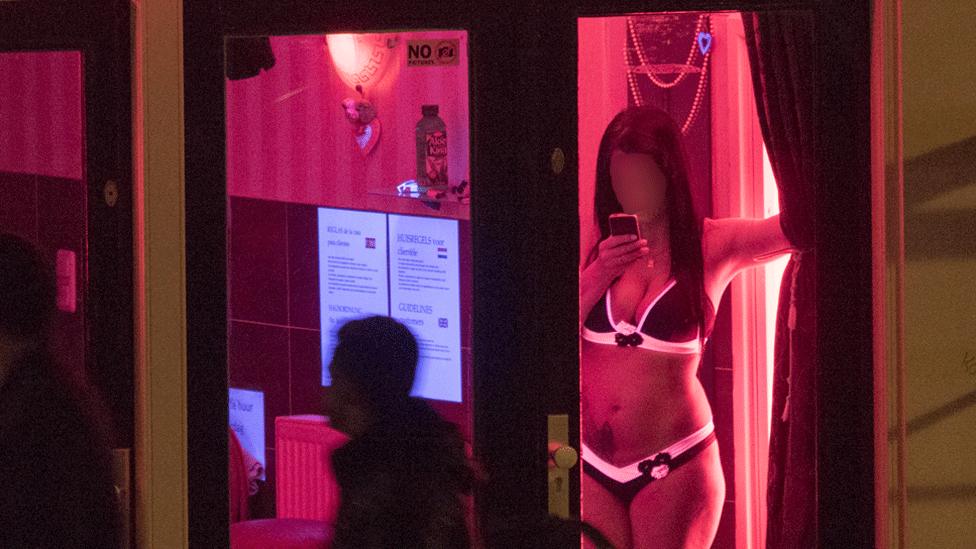
- Published29 November 2017
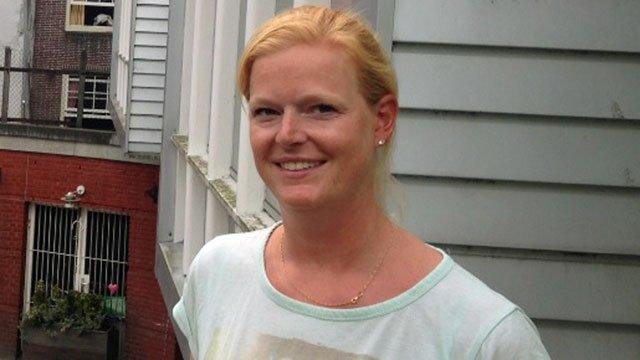
- Published8 August 2018
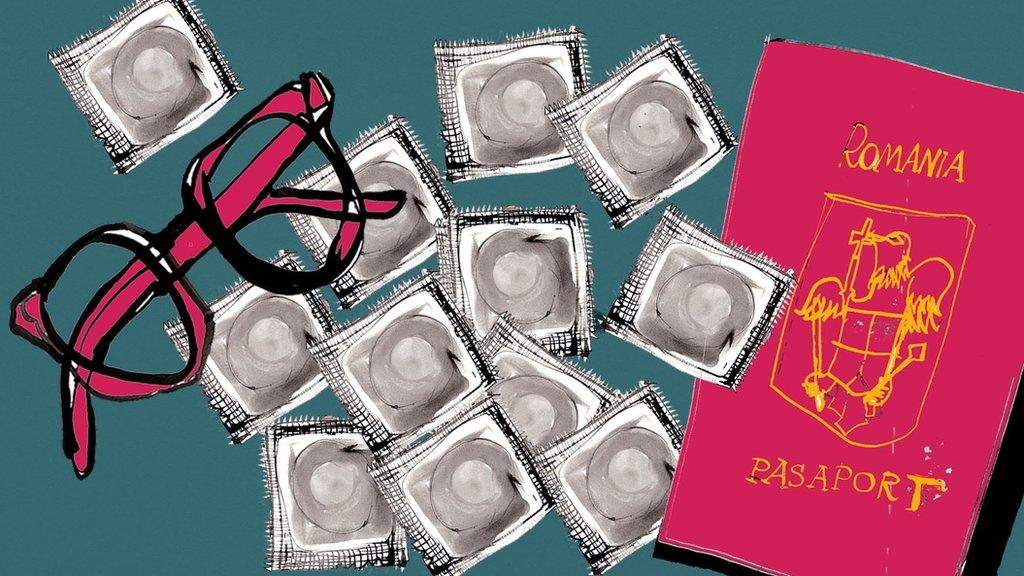
- Published5 November 2018
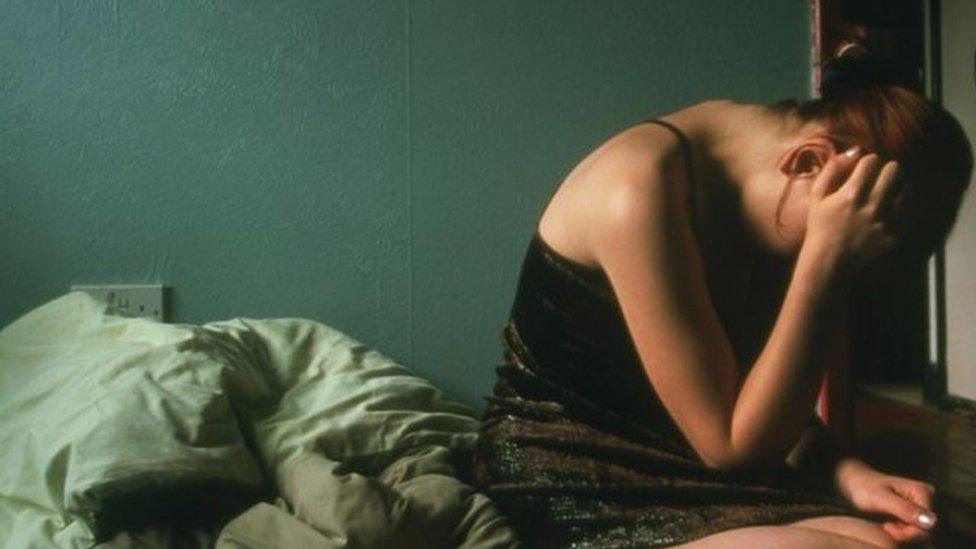
- Published10 August 2017

- Published21 March 2011